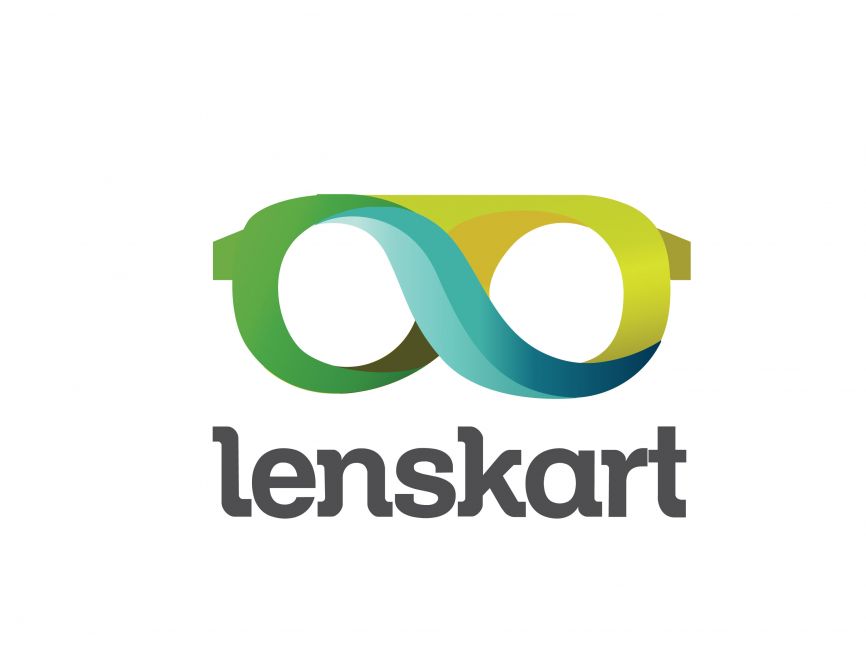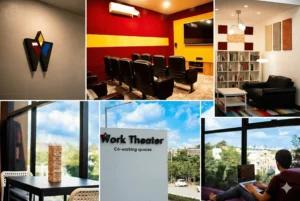In this business model series, we explore the Lenskart Business Model to explain and understand how the Business Model of Lenskart is structured and to learn about how Lenskart makes money.
Lenskart, an Indian eyewear retailer, has taken the market by storm in recent years. With a firm commitment to delivering affordable, high-quality eyewear to millions of customers, the company has disrupted the traditional eyewear industry. In this blog post, we will delve deep into Lenskart’s business model using Alexander Osterwalder’s Business Model Canvas, analyzing each element of the company’s innovative strategy. Additionally, we will introduce the company’s founders and explore the story of Lenskart’s inception.
Lenskart: The Company and Its Founders
Lenskart was founded in 2010 by Peyush Bansal, Amit Chaudhary, and Sumeet Kapahi. Bansal, an Indian Institute of Technology (IIT) Delhi graduate, initiated the idea after experiencing the challenge of finding affordable, high-quality eyewear in India. With an ambitious vision and an unwavering determination, Bansal, Chaudhary, and Kapahi set out to revolutionize the Indian eyewear industry.
The Lenskart Story
The inception of Lenskart was driven by Bansal’s own struggle to find reasonably priced eyewear in India. He noticed that the market was dominated by a few players offering limited options, high prices, and mediocre quality. Recognizing the gap in the market, Bansal, Chaudhary, and Kapahi decided to launch Lenskart to offer high-quality eyewear at reasonable prices.
The founders initially launched Lenskart as an online platform. They quickly realized, however, that Indian consumers were hesitant to purchase eyewear online without trying the products first. To address this challenge, Lenskart started a unique “home try-on” service, enabling customers to try various eyewear products before making a purchase. This innovative solution garnered attention and helped Lenskart establish itself as a trustworthy and reliable eyewear brand.
The Business Model Canvas of Lenskart
To understand Lenskart’s business model, we will use Alexander Osterwalder’s Business Model Canvas, a strategic management template that allows for the visualization and description of a company’s value proposition, infrastructure, customers, and finances. The Business Model Canvas comprises nine building blocks:
- Customer Segments
- Value Propositions
- Channels
- Customer Relationships
- Revenue Streams
- Key Resources
- Key Activities
- Key Partnerships
- Cost Structure
Customer Segments
Lenskart primarily targets Indian consumers who require eyewear, including prescription glasses, sunglasses, and contact lenses. The company’s customer base can be further segmented into the following categories:
- Value-conscious customers who seek affordable yet high-quality eyewear
- Fashion-conscious customers who desire trendy and stylish eyewear
- Customers who prefer convenience and ease of purchase
Value Propositions
Lenskart offers several value propositions to its customers:
- Affordable pricing: Lenskart provides high-quality eyewear at affordable prices, making it accessible to a broader customer base.
- Variety and style: The company offers a wide range of eyewear products, including numerous designs, materials, and lens options.
- Convenience: Lenskart’s online platform, home try-on service, and physical stores make purchasing eyewear easy and convenient.
- Quality: The company maintains strict quality control measures, ensuring that its products meet the highest standards.
- Customer service: Lenskart’s customer support is responsive and proactive, addressing customer concerns and queries promptly.
Channels
Lenskart uses a multi-channel approach to reach its customers:
- Online platform: Customers can browse, select, and purchase eyewear through the company’s user-friendly website and mobile app.
- Home try-on service: Lenskart offers a unique service where customers can try on various eyewear products at their doorstep before making a purchase.
- Physical stores: The company operates a network of brick-and-mortar stores across India, providing customers with a seamless offline experience.
- Third-party retailers: Lenskart partners with various optical stores to expand its reach and offer its products to a wider audience.
Customer Relationships
Lenskart has built strong customer relationships through various touchpoints:
- Personal assistance: The company provides personalized assistance to customers in selecting the right eyewear products.
- After-sales support: Lenskart offers free services, such as eyewear adjustment, cleaning, and minor repairs, to ensure customer satisfaction.
- Loyalty programs: The company has a loyalty program, offering discounts and exclusive deals to repeat customers.
- Online engagement: Lenskart maintains an active social media presence and blog, sharing updates, promotions, and educational content on eyecare and eyewear trends.
Revenue Streams
Lenskart generates revenue through the following streams:
- Eyewear sales: The primary revenue source comes from the sale of eyewear products, including prescription glasses, sunglasses, and contact lenses.
- Accessories and add-ons: Lenskart also offers accessories like eyeglass cases, cleaning solutions, and lens wipes, as well as add-ons such as anti-glare and scratch-resistant coatings.
- Franchise fees: The company earns revenue from franchise fees collected from its partner optical stores.
Key Resources
Lenskart relies on several key resources to operate its business:
- Skilled workforce: The company employs a skilled workforce, including optometrists, technicians, and customer support personnel.
- Manufacturing facilities: Lenskart operates state-of-the-art manufacturing facilities, ensuring quality control and efficient production.
- Robust supply chain: The company has established a robust supply chain, sourcing materials and components from trusted suppliers.
- Technology: Lenskart’s online platform and mobile app enable seamless customer experiences, powered by advanced technology and analytics.
Key Activities
Lenskart engages in various key activities to deliver value to its customers:
- Product design and development: The company continually develops new eyewear products to cater to the evolving tastes and preferences of its customers.
- Manufacturing: Lenskart manufactures its products in-house, ensuring strict quality control and cost optimization.
- Marketing and promotions: The company invests in marketing and promotional activities to increase brand awareness and drive sales.
- Customer support and service: Lenskart maintains a strong focus on customer service, addressing customer queries and concerns promptly and effectively.
Key Partnerships
Lenskart has established several key partnerships to support its business operations:
- Optical store partnerships: The company partners with third-party optical stores to expand its reach and offer its products to a wider customer base.
- Supplier partnerships: Lenskart works closely with suppliers to source high-quality materials and components for its eyewear products.
- Technology partnerships: The company collaborates with technology providers to enhance its online platform and mobile app capabilities.
Cost Structure
Lenskart’s cost structure includes the following major components:
- Manufacturing costs: These include raw material, labor, and overhead expenses related to the production of eyewear products.
- Marketing and advertising expenses: The company incurs costs for promotional activities, such as digital marketing, influencer collaborations, and in-store promotions.
- Store operation costs: These include rent, utilities, and employee salaries for the company’s physical stores.
- Technology costs: Lenskart invests in technology infrastructure and software development to maintain and improve its online platform and mobile app.
Lenskart’s success story is a testament to the power of innovation and entrepreneurship. By identifying a gap in the Indian eyewear market and developing a unique business model, the company has managed to disrupt the industry and cater to millions of customers. Through the use of Alexander Osterwalder’s Business Model Canvas, we have analyzed Lenskart’s customer segments, value propositions, channels, customer relationships, revenue streams, key resources, key activities, key partnerships, and cost structure. This detailed analysis provides valuable insights into the company’s strategic approach and competitive advantages.
Lenskart’s multi-channel strategy, extensive product range, affordable pricing, and emphasis on customer service have enabled it to create a strong brand presence and capture a significant share of the Indian eyewear market. Additionally, the company’s innovative home try-on service and use of technology have helped it build trust and loyalty among its customers.
As the eyewear industry continues to evolve, Lenskart’s ability to adapt and innovate will be crucial for its long-term success. By staying true to its mission of providing high-quality, affordable eyewear to millions of customers, Lenskart has the potential to emerge as a global leader in the eyewear space.
In conclusion, Lenskart’s story serves as an inspiring example for aspiring entrepreneurs and business leaders. By understanding the market’s pain points, creating innovative solutions, and focusing on delivering value to customers, businesses can successfully disrupt traditional industries and make a lasting impact.
Did you know? Tech Startups like to use our coworking space in Bangalore
Learn more about our coworking space on our YouTube channel Work Theater Studios where we talk about a variety of topics including personal finance, entrepreneurship, business and life.
Did you know? We also have a private theatre in Bangalore.




